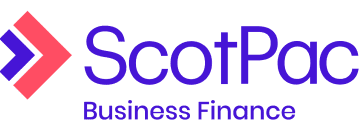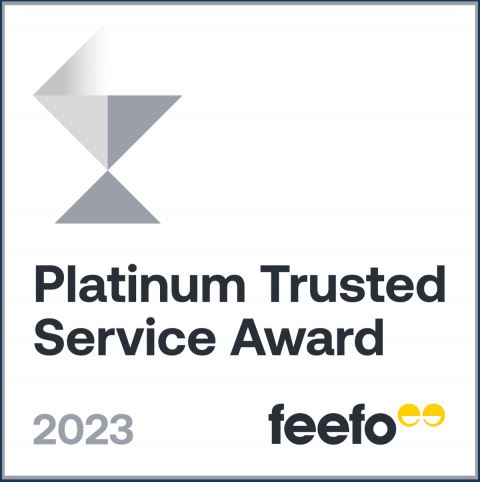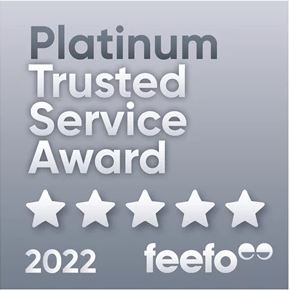Tax debt loans are short-term loans to assist small to medium businesses in paying debts outstanding to the Australian Taxation Office (ATO). Repayment terms can often be more flexible than with other loans and business owners can monitor the loan and repayments and pay the loan off more quickly or slowly depending on their cash flow.
The maximum you can borrow and the period over which you can repay your loan will vary depending on the type of loan. In addition to settling tax debts, businesses can also utilise tax debt loans for other business expenses such as salaries, inventory and paying separate outstanding bills.
Why compare business loans with Savvy?
You can speak with one of our specialist commercial brokers who can walk you through a range of loans to best suit your companies needs.
You can compare business loan offers, through a range of trusted lenders, maximising your chances of a great rate.
You can fill out our simple online form to generate a free business finance quote within minutes. You can also come back to it at any time.
Business lenders you can compare







What types of tax debt are most likely to be approved for a loan?
The reason that you are needing a loan to pay tax debt will be considered by the lenders when you apply for a loan. Some of the most common scenarios, and their likelihoods of achieving approval, are:
- Error in calculating taxes – If your accountants have made a one-time error when preparing your BAS, or income tax return, the lenders will be more receptive to your situation. They should be able to see that this is not an error made by you.
- Capital Gains Tax (CGT) debt – If you have incurred a tax debt due to profit made from sale of property, finance lenders may be more likely to approve your tax debt loan. You are seen to be more in control of your finances, as this is likely to only happen once.
- Rapid business growth – If your business experiences unexpectedly rapid growth and are forced to exhaust your cash flow reserves to keep up, you may find yourself in a difficult situation. Lenders will look kindly on circumstances like these.
- Your business is stable – If you’ve been running your business for a while and its revenue has been positive and consistent, your tax debt application is more likely to be successful than that of a new business who hasn’t had much time to settle.
The types of business finance
What our customers say about their finance experience
What our customers are saying


Savvy is rated 4.9 for customer satisfaction by 93 customers.
Explained: fees to avoid when looking for the best tax debt loan
Monthly fees
Many banks and finance companies charge an account keeping fee when you take out a tax debt or business loans. These are charged every month on top of your interest payment. Account keeping fees are on average $10-$15 per month for this type of loan.
Application fees
The majority of lenders charge an application fee when you are approved for a tax debt loan. This can also be called a start-up fee, upfront fee or establishment fee. This is a once-off fee that the lender charges to set up the loan. These can be anywhere up to $990.
Bank fees
Bank fees are payable in a number of circumstances. These can include fees for:
- Late payments
- Missed payments
- Customer assisted transactions (i.e., for payments made over the counter at the bank or finance company)
- Loan re-draw fees, where the ability to redraw is a feature of your loan
Discharge fees
If you pay out your loan early, you may be liable for an early payout, or discharge fee. The average discharge fee for a business loan is $335.
Applying for a business loan
Start by filling out our simple online application form. This will tell us details like what you want your loan for, how much you need and your business’ structure, revenue and trading time.
We may require further information in some cases to verify parts of your application. If this is the case, we’ll ask you to submit additional documents via our online portal.
Once we get all the info we need, we’ll get to work comparing options from our lender panel. A member of our consultant team will give you a call to talk about your options.
After you give us the all-clear, we’ll get to work preparing your application to submit to your lender. This can be formally approved as soon as within 24 hours.
Once you receive approval, you’ll be sent all the required contracts and forms you’ll need to sign, which can be done electronically. We’ll handle settlement and your funds will be transferred once it's all wrapped up!
Business loan eligibility and documentation
Age
You must be at least 18 years of age
Residency
You must be an Australian citizen or permanent resident (or, in some cases, an eligible visa holder)
ABN registration
Have an ABN registered in your name (available from as soon as one day after registration)
Usage
Meet business usage requirements (at least 51% of any asset you buy, for example)
Credit score
You must meet your lender’s minimum personal and business credit score requirements
Commercial asset
If you're buying an asset with a secured loan, it must meet your lender’s requirements in relation to its type, age and condition
Personal information
Such as your full name, date of birth, address and contact details
Driver's licence
Front and back (or another form of government-issued ID)
Assets and liabilities
Information about your business’ assets and liabilities, as well as those in your name
Asset details
If buying an asset, information such as its model and age, is worthwhile having on hand
Business statements
Business Activity Statements (BAS) and business bank statements may be requested, but not always
Frequently asked questions about tax debt loans
While the interest rate is important and will affect your payout figure, there are other factors to consider in an ATO debt loan. The loan term, payment flexibility, fees and minimum and maximum loan amount and repayment term all need to be taken into account.
Your house can be taken as security. Many lenders require security in the form of real estate for ATO tax debt finance. However, if you’re looking for a smaller secured tax debt loan, a vehicle like your car may suffice as security. That being said, there are many unsecured lenders that you can compare with Savvy that can provide short term business funding without security.
In short, no. Many banks do not offer loans specifically to fund tax debt. While some banks offer business loans for this purpose, the loan does not generally have the flexibility that comes with a loan designed specifically to fund ATO debt. There are, however, many independent lenders who fund these types of loans.
While extending your mortgage can seem like a good idea, using the equity in your home to finance a tax debt can mean that you pay more in interest over the term of your home loan. A separate tax debt loan is a more flexible loan arrangement. You can easily monitor the interest you are paying on your tax debt, and pay the loan out in its entirety when you are ready. Lenders also understand that your income will not be the same every month. Many tax debt loans allow you flexible payment arrangements to work in with your cash flow.
Yes – as options are quite limited for tax debt financing, and given the likelihood of applying for an unsecured loan, your application is likely to cost a reasonable amount in interest and fees. However, tax debt loans are solutions to a problem, which means that it’s better for you to sort out your tax debt with a loan that you repay with added costs than sit on your debt and incur penalties from the ATO.
- Banks – banks offer loans of all types to businesses and individuals. While they may offer cheaper rates for certain types of loans and special discounts to existing customers, lending criteria is usually stricter than other lenders.
- Specialist online lenders – specialist online lenders are an alternative to banks that many tax debt borrowers prefer. As their lending criteria is more lenient and they’re flexible when it comes to offering their loans, you’re most likely to be approved for a loan with a specialist online lender.








